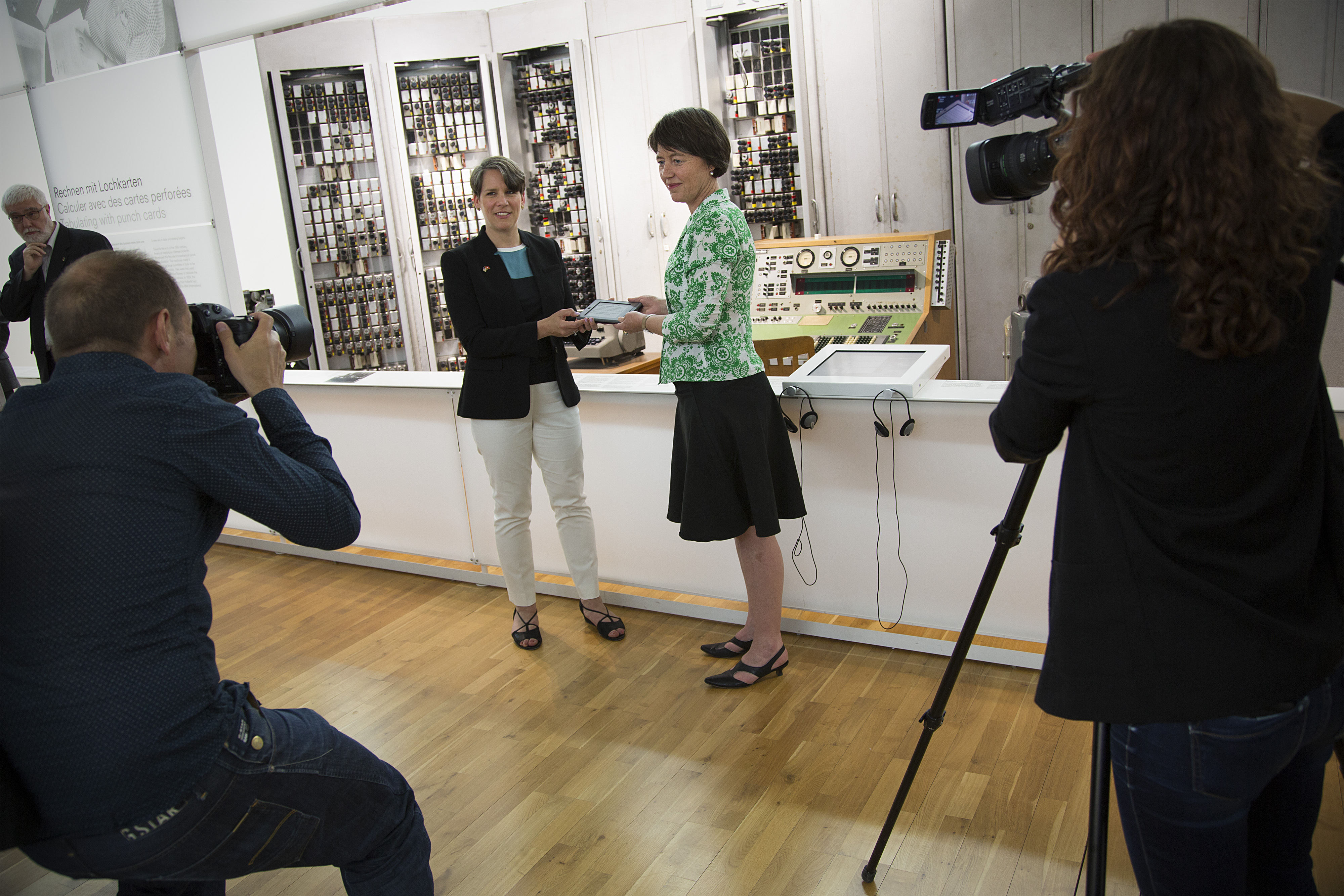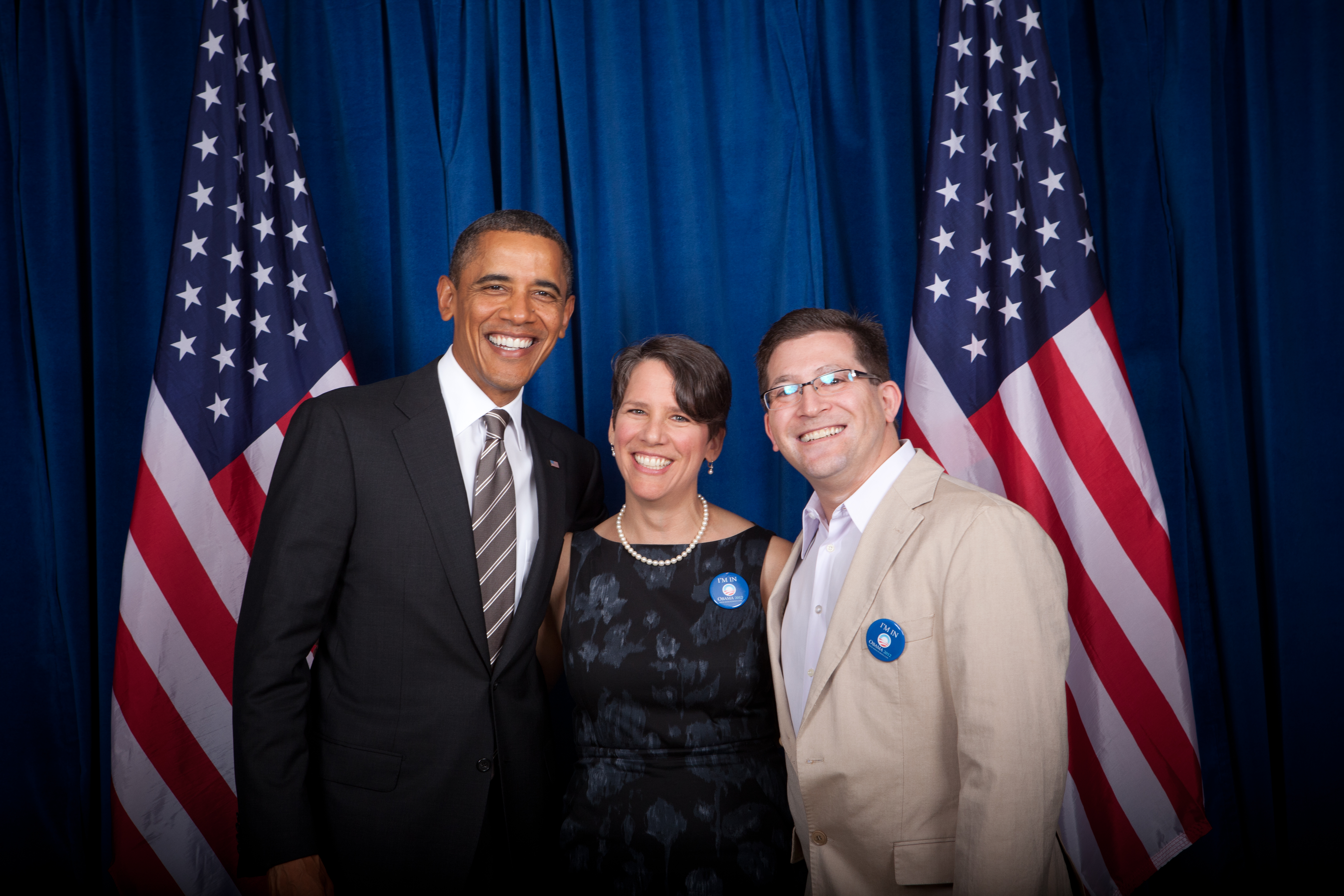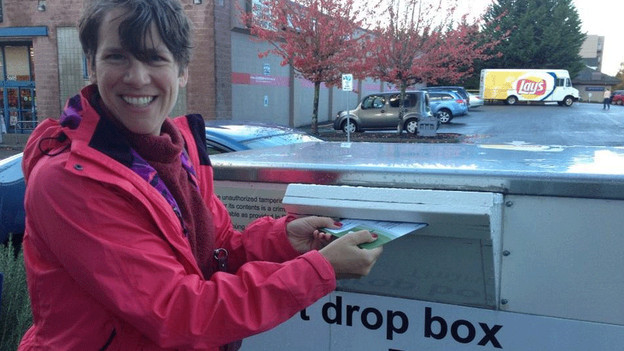LeVine ‘leans in’ to new job as US ambassador

Suzi LeVine, who has worn many hats in her life and career and is now US ambassador to Switzerland and Liechtenstein, wants to help send the message during her time in Bern that women should “lean in” and take an active role in shaping society.
When LeVine was sworn in last month at the White House by US Vice President Joe Biden, she made history by taking the oath of office over an Amazon Kindle e-reader device. The e-reader was opened to the 19th amendment of the US Constitution, which gave American women the right to vote in 1920.
Asked whether that decision had anything to do with the fact that Swiss women didn’t get the right to vote until more than 50 years later in 1971, LeVine chose instead to focus on her own experience and female role models.
“I’ve had a very non-linear career in which I’ve left the paid workplace twice, gone back into the paid workplace twice, where I’ve been an executive, where I’ve been a volunteer and where I’m always a mom,” she tells swissinfo.ch.
“So for me it’s about who I am as a woman leaning in, and I felt that with the right to vote, those suffragists, those women who dedicated their lives to get women the right to vote were the ultimate at leaning in. That’s why I chose to have [the e-reader page] flipped to the 19th amendment.”
The term “lean in” was coined by Sheryl Sandberg, an executive at Facebook who wrote a book by the same name detailing how women can overcome struggles for equality in the workplace. Like Sandberg, LeVine has also been an executive at a technology company – Microsoft – where the Seattle native most recently led a programme to promote student and educational innovation.
The ambassador, who officially assumed her diplomatic role July 1 after presenting her credentials to Swiss President Didier Burkhalter, maintains a very active social media presence and has continued to network with students, innovators and young women during her first month in Switzerland.
Just experienced the powerful show @girlbeheardExternal link by Lake Geneva. Their words will "impact, last & survive"! pic.twitter.com/YCxF3Tc3f0External link
— Suzi LeVine (@AmbSuzi) June 21, 2014External link@USEmbassyBernExternal link: @AmbSuziExternal link connecting dots w/ @SGDAchExternal link @LudiciousFestExternal link and @prohelvetiaExternal link pic.twitter.com/tRPA87FkUdExternal link cc: @swissnexSFExternal link @swissnexBostonExternal link
— GameCulture (@gameculture_ch) June 30, 2014External linkLeVine believes, however, that her online presence can only take her so far and is not a substitute for face-to-face conversation.
“I truly believe that my job here in Switzerland is to listen to the Swiss people and to share what I learn with the folks in the US, and to share with the people of Switzerland what matters to people in the United States and help build that bridge,” she says. “I believe social media and digital tools provide some of the fabric of that, but there’s nothing that can beat interaction face-to-face.”
Fundraising success
As far as diplomatic experience goes, LeVine doesn’t have any – but that’s not at all rare for US ambassadors. It’s typical for a sitting American president to fill diplomatic posts from the ranks of the most successful fundraisers for his campaign, and as a member of the Obama campaign’s national finance committee, LeVine helped raise at least $1.3 million (CHF1.15 million) for the current US president since 2007.
Indeed, according to the American Foreign Service Association, the Swiss diplomatic post has only gone to career diplomats twice since 1960, while being handed to political benefactors 20 times. The last US ambassador to Switzerland, Donald S. Beyer, was also a major campaign “bundler” for Obama – a person who gathers a large number of campaign donations in a particular area.
That method of filling diplomatic posts can backfire. Most recently, Obama’s pick for ambassador to Norway demonstrated at his hearing before the Foreign Relations Committee that he lacked basic knowledge about Norway, such as the fact that it has a constitutional monarchy and is not led by a president.
But LeVine has set some clear goals for herself in her post and is aware of past tensions between the US and Switzerland – particularly over banking secrecy issues – which she recently expressed to Swiss public television SRF.
“One [goal] is growing our economic ties. Two is increasing our collaboration around security and our environment, and the third is increasing the mutual awareness of our cultures, values and policies.”
“Certainly there have been issues [between the countries]…I’ll be talking to folks about how we can overcome those issues and how we can get to turning the page and moving forward together.”

In compliance with the JTI standards
More: SWI swissinfo.ch certified by the Journalism Trust Initiative



You can find an overview of ongoing debates with our journalists here. Please join us!
If you want to start a conversation about a topic raised in this article or want to report factual errors, email us at english@swissinfo.ch.